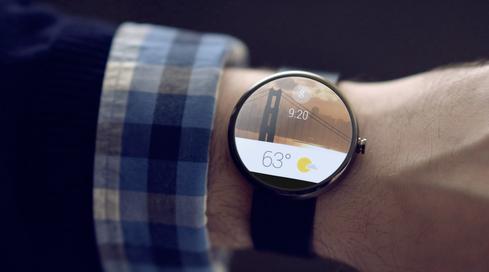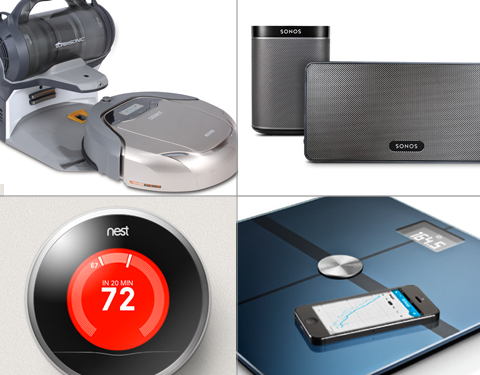Android Wear Gives Google Edge In Smartwatch RaceAndroid Wear Gives Google Edge In Smartwatch Race
Google stands to gain a firm(er) foothold in the wearables market ahead of Apple's iWatch.


8 Gadgets For The High-Tech Home
8 Gadgets For The High-Tech Home (Click image for larger view and slideshow.)
Apple is expected to debut a wearable device in September or October, just ahead of the important holiday shopping season. Despite anticipation for Apple's supposed smartwatch, Google may already have control of the market thanks to its Android Wear platform.
Smartwatches and other wearables are still in the early days. Devices have been in the market for years, but none of them has really nailed it in terms of bringing together the right mix of features and capabilities. Motorola's first device, the MOTOACTV, was a failure. Sony's first SmartWatch didn't do much better, but at least it earned a sequel. Sony has not said if either device sold in significant volumes. Pebble made significant gains in the last year, perhaps because its device is the simplest and least expensive of the lot.
The best-selling smartwatch of 2013 was the Samsung Galaxy Gear, which ran Android when it launched. Samsung later showed off new wearables in February, which run its proprietary operating system called Tizen. They went on sale in April, but reviews of the devices were lukewarm at best.
All these devices run proprietary operating systems (or, in the Galaxy Gear's case, a proprietary user interface). Sure, they can associate with smartphones through dedicated apps, but they don't necessarily work seamlessly with the smartphone. Samsung limited the compatibility of its wearables to its own smartphones. This is a problem for consumers, who may not want to get suckered into supporting a single hardware vendor. At least Sony and Motorola allowed their smartwatches to work with any Android device. Pebble is the only smartwatch that works fully with both Android and iOS.
Then Google announced Android Wear, its platform for wearables. Android Wear represents a paradigm shift for the smartwatch market.
[Google keeps killing off products at the same time it launches new ones. Read Google Kills Quickoffice.]
Android Wear won instant support from three device makers: LG, Samsung, and Motorola. All three companies debuted Android Wear-based hardware. The LG G Watch and Samsung Gear Live are already available for sale. The Moto 360 will be available later this summer. These three devices will succeed where their predecessors didn't for one simple reason: Android Wear truly extends the Google experience beyond the smartphone for the first time.
Android Wear makes heavy use of Google Now, Google's voice-activated assistant. Google Now may not have quite the personality of Apple's Siri or Microsoft's Cortana, but it works well on smartphones, tablets, and now smartwatches. Google Now is adept at getting to know Google users -- and Android users in particular. Importantly, Google is controlling the user experience on Android Wear devices, so it will be familiar to Android smartphone owners. This is the kind of integration smartwatches really need if they are to succeed. With Android Auto and Android TV extending that experience further, Android users will have access to an entire ecosystem of devices that interact seamlessly.
Apple's smartwatch will need this kind of integration from the start if it is to succeed. Luckily, integration is something Apple is good at. Whatever Apple intends to do with the iWatch, it will need to work flawlessly with iOS-based devices as well as Macs. It wouldn't hurt for the device to work with the Apple TV and CarPlay (Apple's in-car effort), either.
Android Wear is exactly what the smartwatch and wearables market needed: something to tie it all together. Apple can't risk bringing a product to market that doesn't have a similar vision.
In its ninth year, Interop New York (Sept. 29 to Oct. 3) is the premier event for the Northeast IT market. Strongly represented vertical industries include financial services, government, and education. Join more than 5,000 attendees to learn about IT leadership, cloud, collaboration, infrastructure, mobility, risk management and security, and SDN, as well as explore 125 exhibitors' offerings. Register with Discount Code MPIWK to save $200 off Total Access & Conference Passes.
About the Author
You May Also Like






